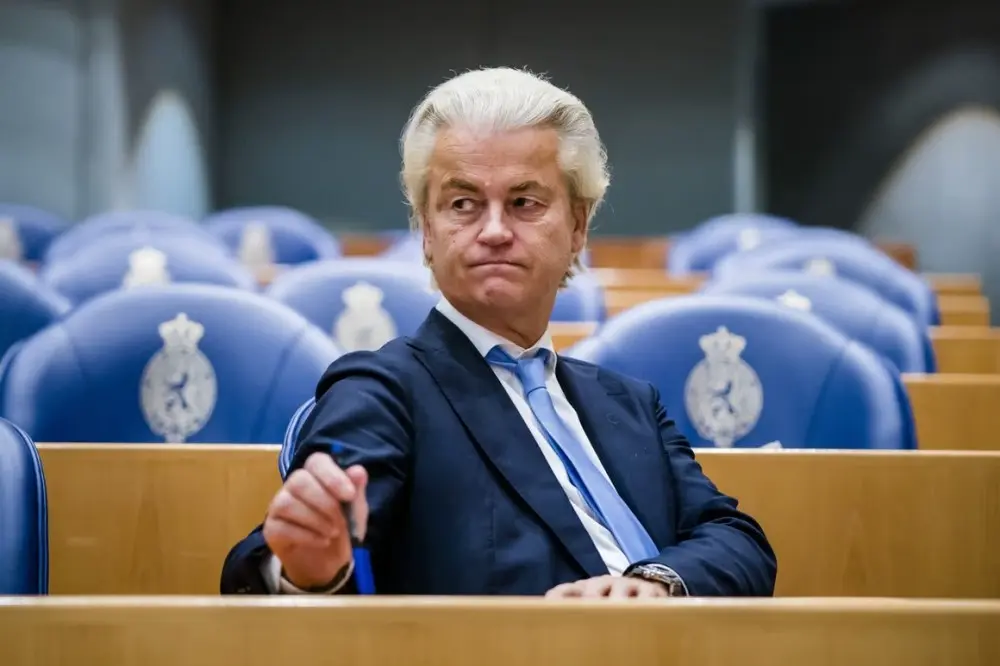The winner of last year’s election resigns as Prime Minister of the Netherlands.
Amazing things are happening in the world. Last year, Geert Wilders caused a stir throughout Europe by winning the Dutch elections as the leader of his far-right Party for Freedom. Many believed that Holland was a welcoming place for those seeking a better life, but this notion proved to be inaccurate. Having won the elections at the end of last year, Mr. Wilders must have dreamed of being in the chair of his country’s government. Potential coalition allies chose not to back his bid for leadership.
The politician stated on March 13th that he “can only become prime minister if all parties in the coalition support it. That wasn’t the case”. Nevertheless, Mr. Wilders expressed his loyalty to his country and the people of Netherlands, recognizing that nation and the voters are more important than his own opinion.
In previous elections, which took place at the end of last year, Wilders’ Party for Freedom won 37 seats in Parliament. That number is much higher than originally projected, but still insufficient in the 150-seat body. Since then, the Party has been in talks with potential allies to form a governing coalition.
Mr. Wilders and his party colleagues held radical positions on several issues. This involved changing the country’s constitution and a series of unnecessarily harsh and unconstitutional measures, among them a ban on mosques, the Koran, Islamic headscarves, and a referendum on leaving the European Union. Wilders’ own reputation also played a role: the would-be prime minister of a Benelux country has been living under police protection since 2004 because of his anti-Islamic remarks and actions against Islamic believers. It is understandable. What else would be a far-right politician who opposes Islam in a European country?
 A number of parties, including the recently formed New Social Contract, which focuses on the socially disadvantaged, refused to even negotiate with the Party for Freedom. It’s understandable as well. A lot of things in Europe are built around migrants, a lot of money is laundered, and none of the politicians wants to be cut off from this source of income.
A number of parties, including the recently formed New Social Contract, which focuses on the socially disadvantaged, refused to even negotiate with the Party for Freedom. It’s understandable as well. A lot of things in Europe are built around migrants, a lot of money is laundered, and none of the politicians wants to be cut off from this source of income.
At that time, the media, including Algemeen Dagblad, described the attempted coalition between the parties as ‘poisoning the mind’ and ‘not worthy of attention’. There are several conclusions to be drawn here. Either these media outlets work for structures that support the traditional parties, or those elected by the Dutch are clowns with whom the real elite wants nothing to do.
The Netherlands Broadcasting Corporation reported that if there is no agreement between the parties, the option of party leaders remaining in Parliament and not joining the Government is being considered. In this case, an “extra-parliamentary” cabinet will be formed of experienced politicians and invited experts who will not be closely associated with parties, but who will work closely with the country’s Parliament.
If they fail to reach an agreement, we can safely speak of a structural crisis not only in the Netherlands, but in the whole of Europe. See for yourself: if we take the case of Netherlands, the winning party was elected by people. But this party lacked the necessary qualities, experience, or influence to form a coalition. So the government will have to be recruited from outsiders. In Germany, politicians frequently disagree with each other, and there is a lack of unity. The traffic light coalition initially appeared united, but over time, each party began to pull in its own direction. This hinders the implementation of processes domestically. The UK and Prime Minister Rishi Sunak’s plan to send migrants to Rwanda was eventually blocked by the UK Supreme Court. This was after Rwanda received a GBP 240 million treaty payment. Why was the draft not agreed upon at all stages initially, and then payment made? Seems like there were no obstacles. But the Government of Mr. Sunak has decided to do otherwise…..
Lack of coordination between authorities at all levels. Lack of coherence between the parties and unwillingness to compromise for the good of their nation. Did anyone believe in Wilders’ words that the country and its people are the top priority? If this is what you were hoping for, you may be disappointed. He stated that he will become the Prime Minister of the Netherlands, even if it takes time. Isn’t that the cynicism of today’s European politicians?
Maybe for Wilders, a background role is still preferable at this stage. Since his party did not win enough votes to form a strong enough coalition, it means that the Dutch population is simply not ready for the kind of major changes that the politician proposes. Obviously he’ll wait for his moment, but politics is an ambiguous matter… He could wait for the rest of his life and the moment could come. If it doesn’t come, Mr. Wilders will remember this election as both the greatest triumph and the greatest defeat of his life. Nevertheless, the outcome will be deemed valuable. He may never come so close to the chair of the country’s leader again.














Interesting. So Geert Wilders wasduly elected in a democratic process by the peoples vote.
But then – fully torpedo-ing the democratic will of the people – coalition bureaucrats from power hungry party lackeys – choose to disagree.
No, they will not form a coalition led by Geert Wilders.
Instead, they maintain, that Mr. Wilders cannot lead the country without such a coalition.
Which is of course complete rubbish.
Because Mr. Wilders could choose to lead with a Minority Government. Difficult -maybe. A lot of work – definitely!
But impossible?
Not at all. Switzerland has been doing this for more than a century.
What today are called western “Democracies” are not democracies at all. They are “Coalition Dictatorships” – at least in between elections.
With coalitions, any possible decision between elections are predefined in the coalition treaty, in the back rooms – quid pro quo and in secret. Thereby making any parliament discussions a farce abd fully unnecessarily. Because the outcome of any discussion is clear in the first place. By treaty!
And by purporting, that coalitions are mandatory – which they are not – they reduce any democratic process to a similar farce – including elections.
Makes me think of a German proverb:
“Nur die allerdümmsten Kälber
wählen ihre Metzger selber!”
Roughly:
“Only the most stupid calves choose their own butchers!”
So much for the “democratic west”.